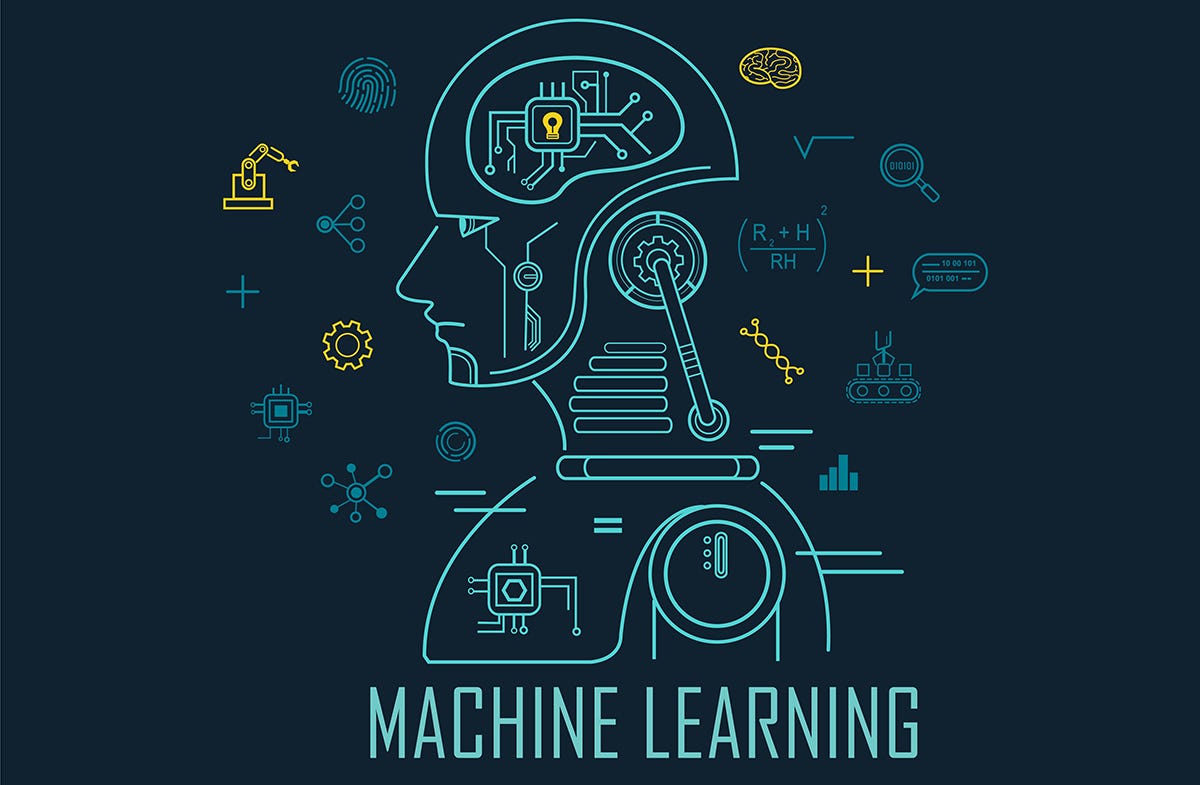Machine Learning and Its Revolutionary Impact on Financial Services

- Mae Lewis, at Content Creator
- 10.08.2023 10:00 am #Financial
Have you ever wondered how your online banking app flags suspicious activity before you know it? Or how do robo-advisors make insightful investment suggestions tailored just for you?
The answer lies in a silent revolution in our wallets and bank accounts. This revolution is driven by machine learning, a potent artificial intelligence changing how we handle money. It's like having a team of expert financial advisors, security guards, and personal assistants all rolled into one, working silently behind the scenes.
The Marriage of Machine Learning and Finance
Machine learning algorithms, the busy bees of the tech world, tirelessly sift through data, identifying patterns, learning from them, and making predictions. When these algorithms dive into the ocean of financial data, they surface with pearls of insight and accuracy that are hard to beat.
Take stock market predictions, for example.
These intelligent algorithms can chew through years of market data and corporate financials to predict future trends with impressive accuracy. In fraud detection, they act like alert watchdogs, spotting anything that seems out of place - such as unusual credit card transactions - potentially saving customers from costly fraud.
In the banking sector, robo-advisors use machine learning to offer personalized advice to customers, making the world of investment accessible to many who would otherwise find it daunting.
How Machine Learning Enriches Finance
Machine learning isn't just a fancy add-on to the financial sector; it's fast becoming its backbone. Let's look at some of the remarkable ways it enhances finance:
Boosting Efficiency
The automation capabilities of machine learning are revolutionizing traditional financial processes. Take loan approval, for example.
Previously, a manual process involving substantial paperwork and time. Machine learning algorithms can now evaluate loan applications quickly and accurately, significantly reducing processing time.
Similarly, machine learning-powered chatbots can handle routine customer inquiries, freeing up human customer service reps to tackle more complex issues.
By automating time-consuming tasks, machine learning allows financial institutions to redirect resources to areas needing human intervention, optimizing efficiency.
Increasing Accuracy
The accuracy of machine learning in decision-making and prediction tasks is a significant asset for the financial industry. Consider financial forecasting, where precise data analysis is critical.
Machine learning algorithms can sift through vast amounts of historical data and identify complex patterns that would take human analysts significantly more time to decipher.
This capability extends to areas like stock price prediction, portfolio management, and risk assessment, enhancing the accuracy of financial forecasts and minimizing potential errors.
Strengthening Security
As financial fraud becomes increasingly sophisticated, machine learning emerges as a critical line of defense. Machine learning models can analyze millions of transactions in real time, identifying unusual patterns that might signify fraud.
They can also learn from each instance of fraud to improve their detection capabilities. In an era where cybersecurity threats loom large, the advanced detection capabilities of machine learning offer much-needed fortification.
Delivering Personalization
Everyone likes a personal touch, and machine learning delivers it in spades. By analyzing past behavior and preferences, these intelligent algorithms offer tailored financial advice and services, enhancing customer experience and satisfaction.
Enhancing Decision-Making
Machine learning algorithms can predict market trends, guiding investment banks' and hedge funds' trading strategies. By analyzing historical data, identifying patterns, and applying learned insights, machine learning offers a more reliable view of the future, empowering financial institutions to make more informed, strategic decisions.
Let's also consider a more everyday aspect of finance: tax planning. With tax deadlines in 2023 and the complex web of deductions, credits, and exemptions, tax planning can be daunting for individuals and businesses.
Machine learning can streamline this process. By processing vast amounts of tax code and past tax return data, machine learning models can offer personalized tax planning strategies, predict the optimal time for making certain financial moves, and even provide reminders as crucial tax deadlines approach.
This not only ensures timely compliance but also helps in optimizing tax savings.
Challenges in Embracing Machine Learning
Despite the compelling benefits, the journey toward fully adopting machine learning in finance has challenges. Let's put the spotlight on some of these:
Protecting Privacy
Financial data is deeply personal, and using it to feed machine learning models raises serious privacy concerns. Balancing the use of data for machine learning with the need to safeguard privacy is a delicate dance, and missteps can be costly.
Ensuring Regulatory Compliance
The inner workings of machine learning models, often termed "black boxes," can be hard to decipher. Explaining their decisions to regulators and customers is a challenge that needs tackling.
Maintaining Data Quality
Data is the lifeblood of machine learning algorithms. These models are trained on large amounts of data to recognize patterns, learn from them, and make predictions or decisions. This process is analogous to a child learning to identify animals.
Just as the child learns from various images of different animals, machine learning models learn from diverse data sets to understand different scenarios and outcomes.
Keeping a Human in the Loop
Machine learning doesn't absolve us of the need for human oversight. Despite the high accuracy of these models, they can still make mistakes or overlook nuances that humans would catch.
Tomorrow's Finance: Machine Learning's Exciting Future
As we look to the future, it's clear that machine learning will play an ever-increasing role in finance. We can expect even more sophisticated models capable of deeper insights and better predictions as technology advances. This will further improve personalization, security, and decision-making in finance.
However, successfully integrating machine learning into finance will require navigating the challenges with care. Regulatory bodies are warming up to the promise of machine learning, and efforts are underway to develop rules that balance protecting customer interests and encouraging innovation.
The Machine Learning Revolution
The partnership between finance and machine learning has ushered in an era of changes that are as profound as they are exciting. This partnership can transform the financial landscape, making it more efficient, secure, and customer-friendly.
The challenges, while accurate, are surmountable. As we steer through them, machine learning's role in shaping the future of finance will continue to grow.
The bottom line?
Embracing the machine learning revolution isn't just a good-to-have – it's a must for any forward-looking financial institution. With machine learning at the helm, the future of finance looks brighter than ever.

























